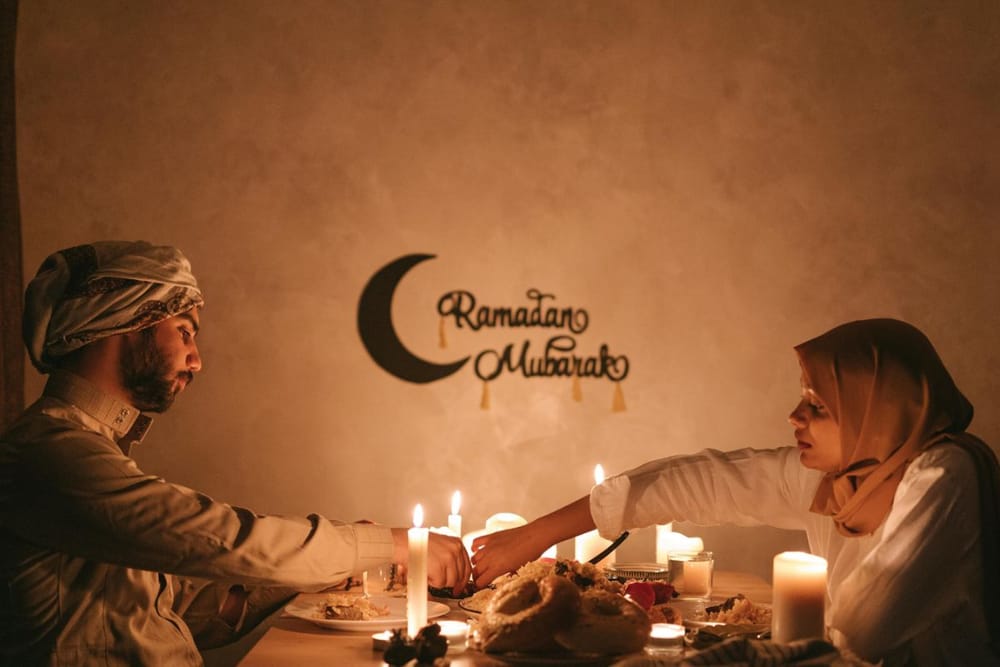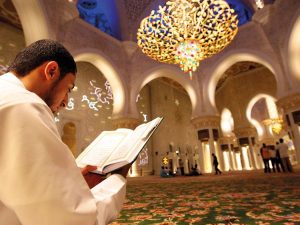7 Ways Ramadan Reshapes Consumer Behavior in the GCC

Ramadan: where shopping habits shift…
As the crescent moon ushers in the sacred month of Ramadan, the pulse of consumer behavior quickens across the Gulf Cooperation Council (GCC) nations. People come together for prayers and reflection, but they also start thinking about what to buy.
During Ramadan, the way people shop in the Gulf shifts. More and more, they’re using their phones to shop online. Families and communities spend more time together, but they also spend money differently.
Here are the 7 ways Ramadan impacts consumer behavior:
1. Increased Use of Digital Platforms
Last year, online sales during Ramadan went up by 61%. That’s a big jump! This surge has prompted businesses to respond with special deals and dedicated Ramadan shops, ensuring they cater to the evolving needs of Gulf shoppers.
During this holiest of months, people in the GCC change how they shop. Last year, more than half of them spent more money than usual, and three-quarters waited for special discounts before buying anything. Many shoppers in the UAE really care about getting good deals, with almost everyone wanting things to be affordable.
Moreover, many people are now shopping online using their phones during Ramadan. In the UAE, most people prefer using apps to buy things directly. This trend of shopping online is getting more popular each year. In 2022, people spent a record $6.2 billion online during Ramadan, and it went up by another 9% in 2023. Undoubtedly, digital platforms have become super important for GCC consumers during Ramadan.
2. Emphasis on Family Time & Spending
Food lies at the heart of Ramadan because it brings families together. Throughout the month, people cook yummy meals at home and look online for new recipes. Apps that deliver groceries become really popular, making it easy to stick to traditions. As families sit down to eat Iftar meal after fasting, the smell of homemade food fills the air, making special memories that last even after Ramadan ends.
Amidst the joyous gatherings and culinary delights of Ramadan, residents meticulously plan their shopping and activities. Groceries, cleaning supplies, and home decor are strategically acquired before Ramadan, with 44% stocking up on essentials and 43% enhancing their surroundings with new decor.
Eid preparations extend throughout the holy month, with gift shopping a focal point. Social calendars fill as 35% prepare to host friends and relatives, while travel dreams take shape with 19% eyeing trips abroad and 17% opting for staycations.
As Ramadan draws to a close, anticipation for Eid Al-Fitr mounts, intensifying the shopping frenzy. Outfits for Iftars and Eid celebrations become sought after, with malls bustling in the final days as everyone seeks the perfect gifts and attire for the occasion.

3. Exploration of New Products
During Ramadan, people in the Middle East are more open to trying out new products and backing local businesses. A whopping 78% of people in the Middle East say they’re interested in checking out new brands while they shop during Ramadan.
4. Pursuit of Discounts and Deals
Even though people are open to trying new things, it’s clear that price and discounts still hold sway over their purchasing choices. During Ramadan, a huge majority (95%) of shoppers care most about finding things they can afford. Additionally, a significant 93% emphasize the importance of discounts, underscoring their significant impact on consumer behavior.
5. Preference for Local Goods Over Global Brands
Almost half of UAE consumers (46%) intend to stick with their usual buying habits regarding local and global brands. However, a significant portion (47%) of UAE residents plan to increase their purchases from local brands. They’re focusing more on buying groceries (64%), clothing and accessories (50%), fragrances (45%), household cleaning products (42%), fast food (41%), and coffee (40%) from local businesses.
6. Rise in Eid Gift Trends
In 2024, most people in the UAE ( almost 92%) are planning to give Eid gifts to their children, spouses, and parents. They’re especially keen on spoiling their kids, with 68% planning to get them presents, a 4% increase from last year. Meanwhile, 64% will be shopping for their spouses, 50% for parents, 46% for friends, and 39% even plan to treat themselves.
When it comes to gifts, chocolate, dates, and sweets are the top choices for 53% of respondents, closely followed by fragrances at 53% as well. Additionally, 44% plan to give money and 37% are thinking of toys and games.
Interestingly, there’s a rise in interest in ‘home goods & furniture’ and ‘pre-owned cars’ compared to last year.
Moreover, 53% of UAE residents are willing to spend more on Eid gifts this year. Reasons include wanting to be more generous (39%), rising prices (40%), improved personal finances (36%), and the intention to give a larger group of people (31%).”
7. Influence of Community Values in Shopping
During Ramadan, people care a lot about community and kindness. They want to buy from brands that care about the same things they do, like helping others and being responsible. Loyalty to a brand isn’t just about what they sell – it’s about feeling a connection with them and trusting them. When brands are real and caring, they build strong relationships with customers based on respect and trust.
Let’s all hope Ramadan brings peace, happiness, and blessings to everyone.
Ramadan Kareem!




